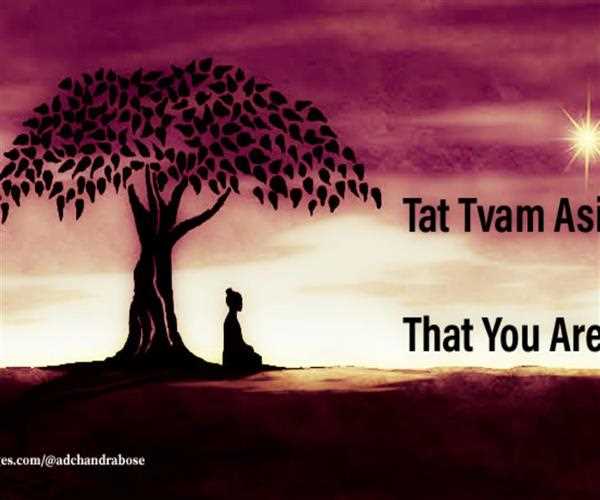Tat Tvam Asi is a Sanskrit phrase that literally means "That art thou." It is one of the most important statements in Hinduism, and it is often interpreted as a declaration of the unity of the individual soul (Atman) and the Supreme Being (Brahman).
The phrase is found in the Chandogya Upanishad, one of the oldest and most important texts of Hinduism. In the Upanishad, the sage Uddalaka Aruni teaches his son Svetaketu about the nature of Brahman. Uddalaka Aruni tells Svetaketu that everything in the universe is made up of Brahman, and that the individual soul is also a part of Brahman. He then says the famous phrase Tat Tvam Asi, which means "That art thou."

The phrase Tat Tvam Asi has been interpreted in many different ways by different schools of Hindu philosophy. The Advaita school of philosophy, which is the most prominent school of Hindu philosophy, interprets the phrase to mean that the individual soul is identical to Brahman. The Dvaita school of philosophy, on the other hand, interprets the phrase to mean that the individual soul is different from Brahman, but that it is still connected to Brahman.
The phrase Tat Tvam Asi is a powerful statement that can have a profound impact on those who understand it. It can help us to see the world in a new way, and it can help us to connect with our true selves and with the divine.
Here are some of the implications of Tat Tvam Asi:
We are all connected to each other and to the universe.
We are all part of something greater than ourselves.
We have the potential to achieve enlightenment.
We should live our lives in a way that is in harmony with the universe.
Tat Tvam Asi is a reminder that we are all one, and that we are all connected to the divine. It is a powerful message of love, compassion, and unity.